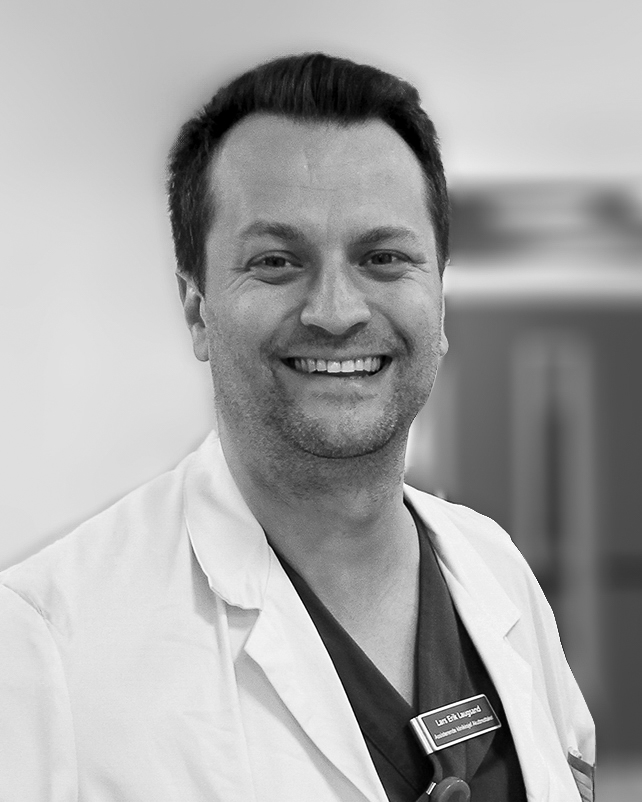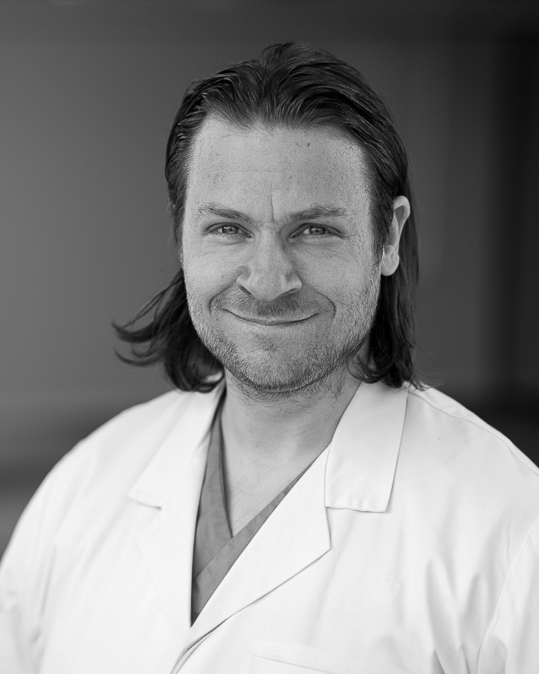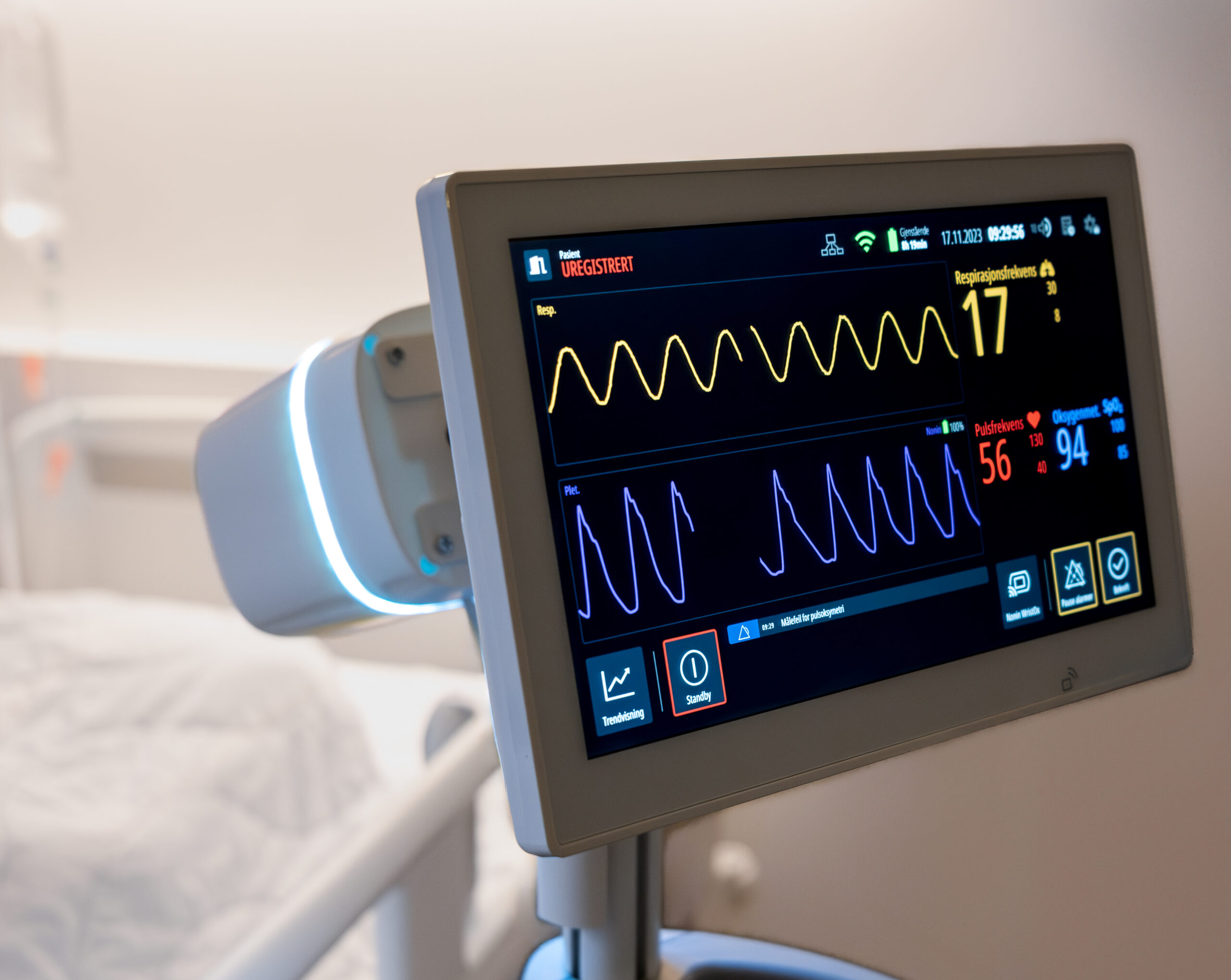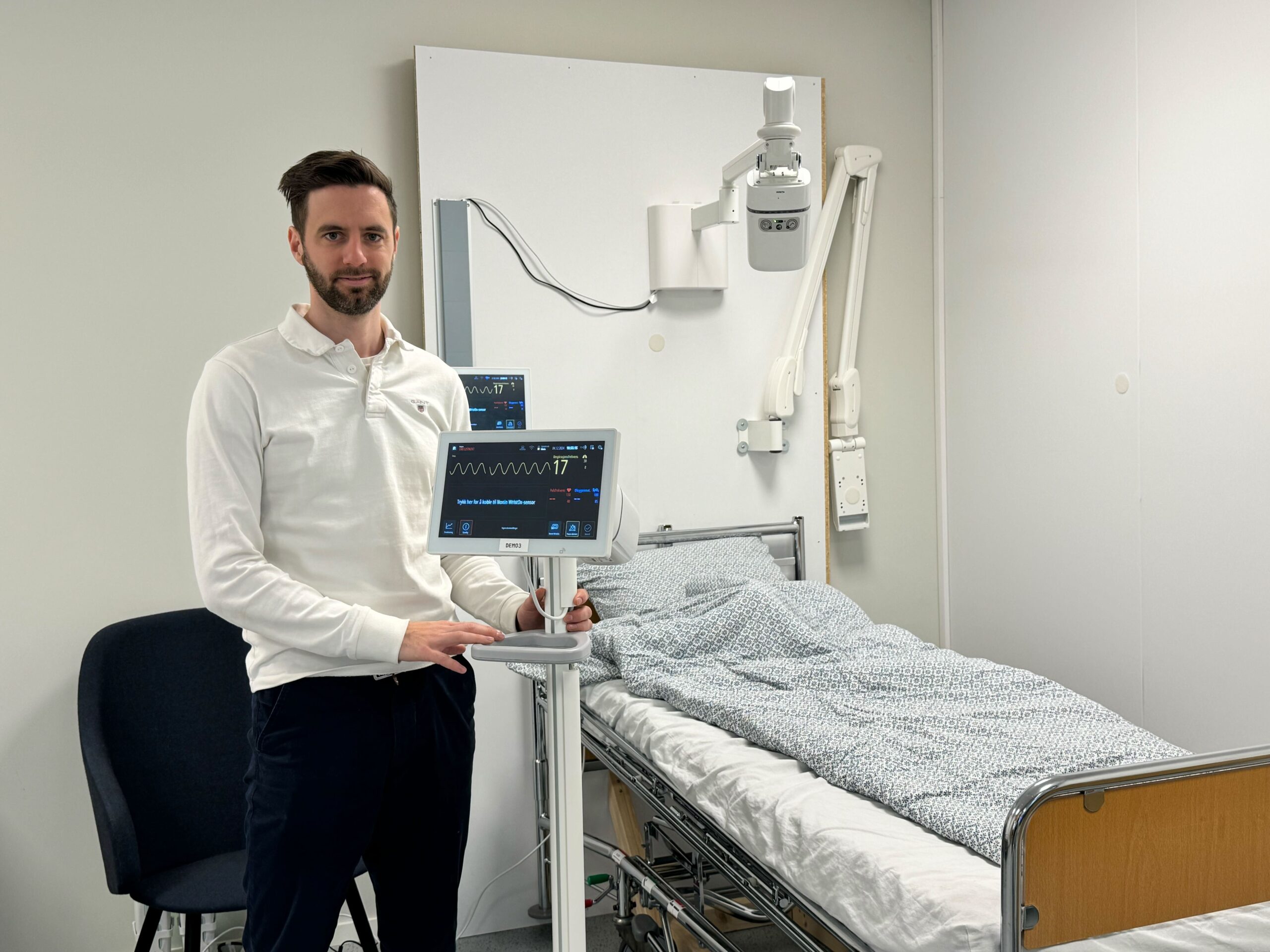Unique on a global scale:
Medtech Company Delivers Groundbreaking Results on Contactless Monitoring
A new clinical study at St. Olavs Hospital in Trondheim, Norway, reveals that Vitalthings' Guardian M10 achieves the most accurate measurements of respiratory rate ever published on a contactless patient monitoring device. “These results are remarkably good,” says Lars E. Laugsand, who leads the emergency department at the hospital.

It is remarkable that respiratory rate can be measured this accurately in awake patients without any equipment physically connected to the patient.
Lars E. Laugsand
Senior Consultant at the Emergency Department
St. Olavs Hospital

We need a sensor that measures respiratory rate and pulse contactlessly and continuously. Continuous measurements increase the chances of detecting patient deteriorations more effectively than we can today.
Lars E. Laugsand
Senior Consultant at the Emergency Department
St. Olavs Hospital
Vitalthings Guardian M10 is the world’s first contactless patient monitor to continuously measure respiratory rate. It is also the first contactless medical device in its category classified as MDR IIb, enabling active patient monitoring in acute situations.
The study was a collaboration between Vitalthings and St. Olavs Hospital as part of the innovation partnership Autoskår, funded by Innovation Norway. Read the full study here.
Exceptional Accuracy
The study was conducted as an observational trial in the emergency department of St. Olavs Hospital in Trondheim. Adult patients were monitored while awaiting diagnostic clarification and transfer to inpatient care. The results demonstrated an accuracy of ±1.2 breaths per minute (Bland-Altman 95% limits of agreement), well within the clinical acceptance threshold of ±3. Additionally, the trial showed no missed alarms, false alarms, or technical alarms.
“It is remarkable that respiratory rate can be measured this accurately in awake patients without any equipment physically connected to the patient,” says Laugsand, who co-authored the study.
Can Detect Clinical Deterioration and Save Lives
Ole Kristian Thu, Chief Medical Officer at Vitalthings, highlights the positive impact of more accurate respiratory rate measurements for both patients and healthcare systems:
“Several studies have shown that continuous respiratory monitoring can lead to earlier detection of clinical deterioration, thereby reducing mortality, the need for ICU transfers, and hospital length of stay,” says Thu, who also oversaw the study.
Despite increasing focus on and demand for continuous monitoring, manual observations—conducted anywhere from hourly to every 12 hours—remain the standard of care for patient monitoring in most hospital wards.

We know that continuous monitoring can also reduce the workload for healthcare personnel and improve capacity. An important prerequisite is high measurement accuracy to avoid alarm fatigue. The outstanding results achieved by Guardian M10 underscore the potential of adopting this kind of technology.
Ole Kristian F. Thu
Chief Medical Officer at Vitalthings
Ståle Toften, Lead Data and Research Scientist at Vitalthings and the study's first author, emphasizes the importance of transparency in their research.
“Providing clinicians with as much information as possible about our products, including their strengths and limitations, enables them to evaluate how these tools meet their needs. This openness fosters even more innovation in the field,” says Toften.

Facts and authors:
Authors:
- Ståle Toften, Vitalthings
- Jonas T. Kjellstadli, Vitalthings
- Jørn Kværness, God klinisk forskning, Norway
- Line Pedersen, St. Olavs Hospital and NTNU
- Lars Erik Laugsand, St. Olavs Hospital
- Ole Kristian Thu, Vitalthings and St. Olavs Hospital

